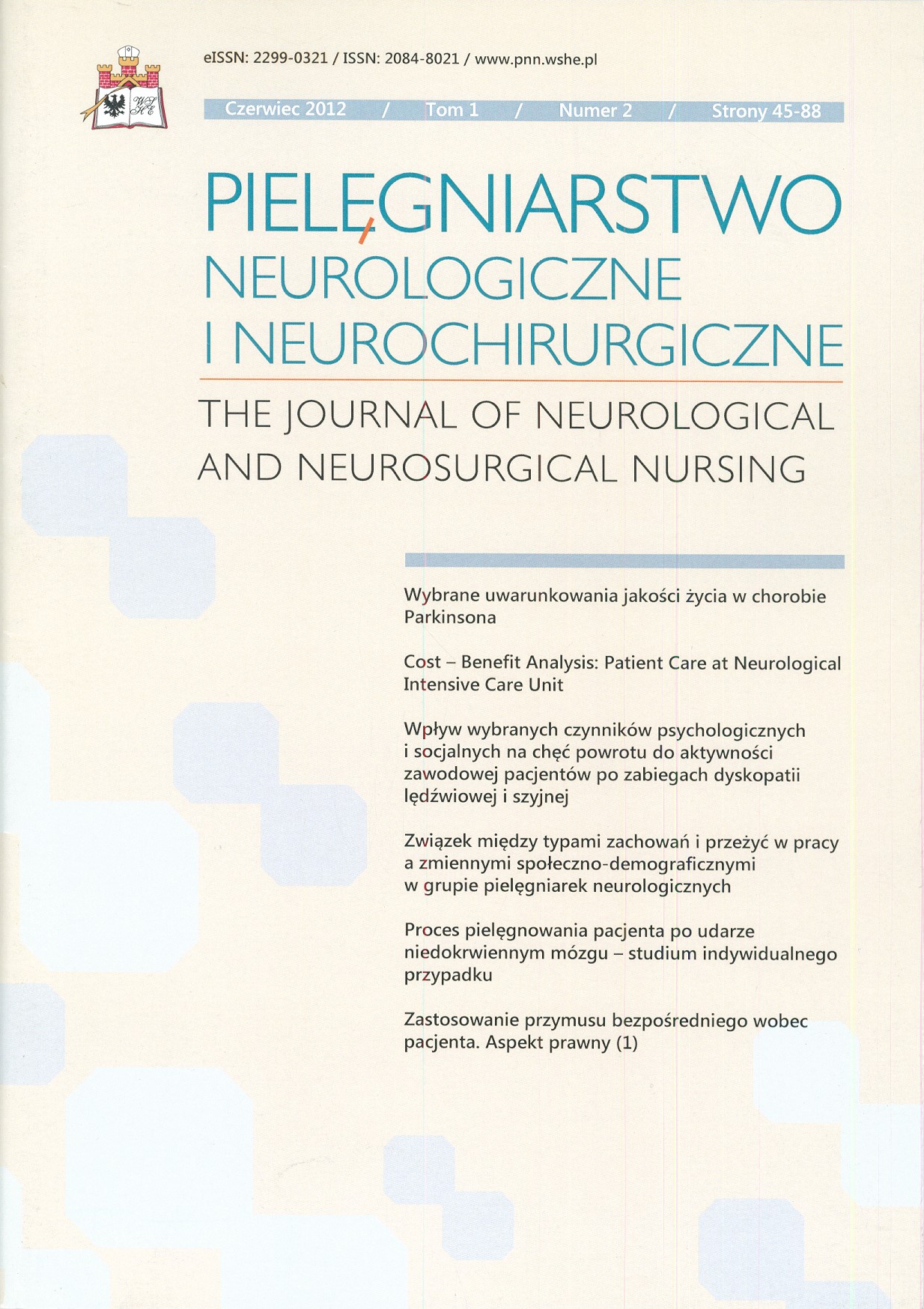Cost – Benefit Analysis: Patient Care at Neurological Intensive Care Unit
Keywords
neurological patient, intensive care unit, cost-benefit analysisAbstract
Background. Modern quality definition relies on patient centeredness and on patient needs for particular services, continuous control of the service provided, complete service quality management, and setting quality indicators as the health service endpoints. The health service provided to the patient has certain costs. Thus, one can ask the following: To what extent does the increasing cost of patient care with changes in elimination improve the quality of health care and what costs are justifiable?
Aim. The aim of the study was cost determination for patient care with the use of a quality aid relative to classic care without a quality aid, with special reference to changes in elimination.
Material and methods. The study included a sample of 224 patients admitted to the Neurological Intensive Care Unit (NICU), University Department of Neurology, “Sestre Milosrdnice” University Hospital Centre. A list of data designed exclusively for research purposes and modified according to neurologic patient needs was used to
follow patient needs during NICU stay with special reference to elimination. Besides data from the list, other data necessary for the study were obtained by direct questions and personnel performance observation.
Results. Study results are presented in three logical units, as follows: laundry, nurses and expendable supplies (urinary catheters, diapers etc.). In both cases (classic management, quality aid), hospital linen maintenance accounted for the largest portion of related costs; however, with classic management it was fourfold that recorded with the use of quality aid. This cost increase was additionally generated by longer time required for patient care provided by nurses. The only saving recorded with classic management relative to quality aid management referred to the cost of expendable care supplies; however, due to the low share of these supplies in the overall cost this finding was not in favour of quality aid non-utilization.
Conclusions. Data presented in this study indicate the cost of managing elimination problems to be lowered more than twice with the use of quality aid as compared with classic management. (PNN 2012;1(2):58-64)
References
Drey N., Gould D., Allan T. The relationship between continuing professional education and commitment to nursing. Nurse Education Today 2009;29(7):740-745.
Department of Health. The NHS Plan, A Plan for Investment, a Plan for Reform. The Stationery Office, London 2000 [pdf].
Calpm-Davies P.J. Demand for post-qualifying professional education in the health care sector in England. Journal of Advanced Nursing. 1996;24(4):800-809.
Smith J., Topping A. Unpacking the ‘value added’ impact of continuing professional education: a multimethod case study approach. Nurse Education Today. 2001;21(5):341-349.
Downloads
Published
How to Cite
Issue
Section
License

This work is licensed under a Creative Commons Attribution-NoDerivatives 4.0 International License.
Stats
Number of views and downloads: 185
Number of citations: 0
